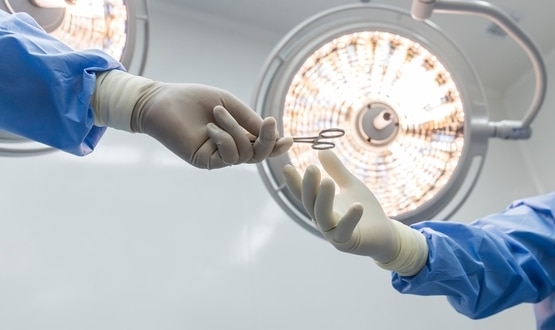UK digital prehabilitation company signs pioneering contract in China
- 7 February 2024

London-based telehealth company QuestPrehab has won a world-first, pioneering contract to provide digital prehabilitation (‘prehab’) services to China.
In an exclusive partnership with international consulting firm IHSN Healthcare, QuestPrehab will supply prehab services to patients with pulmonary conditions at two hospitals in the world’s second most populous country – the Shanghai International Medical Centre and Taiping Rehab Hospital.
News of the China contract follows QuestPrehab’s success in providing prehab services to more than 1,200 NHS oncology patients over the past three years.
Prehab is a relatively new area of healthcare that focuses on improving the general health and activity of patients before surgery / treatment as a way of aiding their recovery.
Patients who complete their prehab course are less likely to be readmitted to hospital, enjoy improved health-related quality of life, return to work earlier and need less involvement with social and primary care providers.
QuestPrehab staff, based in the UK, will deliver digital prehab services via translators to patients in Shanghai prior to their procedure via the company’s digital platform. Initial training to local health professionals will be delivered in partnership with IHSN.
All relevant IP is held by QuestPrehab and discussions about licencing software are in advanced stages.
“Our patients suffer from a range of pulmonary complications, and patient education and pre-operative training would be beneficial in dealing with this, especially a pre-emptive strategy to help with post-op rehabilitation,” said Dr Li, director of rehab unit at Shanghai’s Taiping Rehab Hospital.
“We very much look forward to this tele-prehab partnership which we are confident will be beneficial for all surgical patients. We have similar problems as elsewhere, in that many surgeons currently define success purely on the removal of the cancerous tissue – prehab will be helpful in bringing the focus more to the quality of life post-operatively. We are very hopeful this partnership will expand to cover many more areas.”
“The signing of this ground-breaking contract is proof of how our digital platform addresses the challenges normally associated with delivering prehab services to patients,” added QuestPrehab founder Professor Tara Rampal.
“It’s scalable and cost efficient, making wide-scale adoption of home-based prehab possible. It doesn’t require any modifications to pre-existing infrastructure, processes, patient pathways, or systems, so can be easily inserted into any healthcare provider.”
IHSN CEO, Helen Hu, commented: “We are excited that IHSN Healthcare, with our partner QuestPrehab, are introducing this ground-breaking cancer prehabilitation service to China. This is a new service for Chinese healthcare, and we are delighted that we are implementing our mission of delivering innovative UK-based healthcare services into China.”
After delivering presentations to other hospitals, QuestPrehab, has now received additional proposals about expanding its digital prehab service to other hospitals in China.
A prehabilitation service for diabetes is also in practice as of last year at One Wirral CIC.




